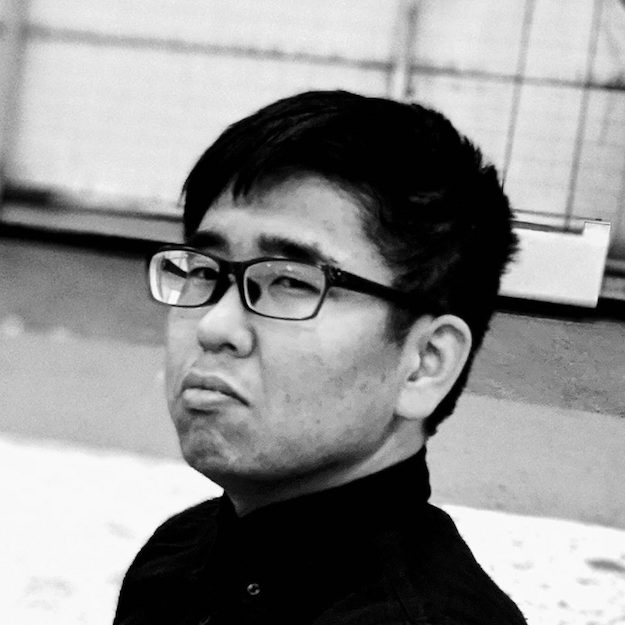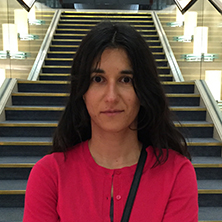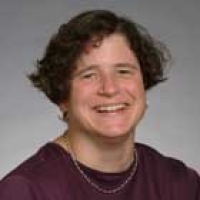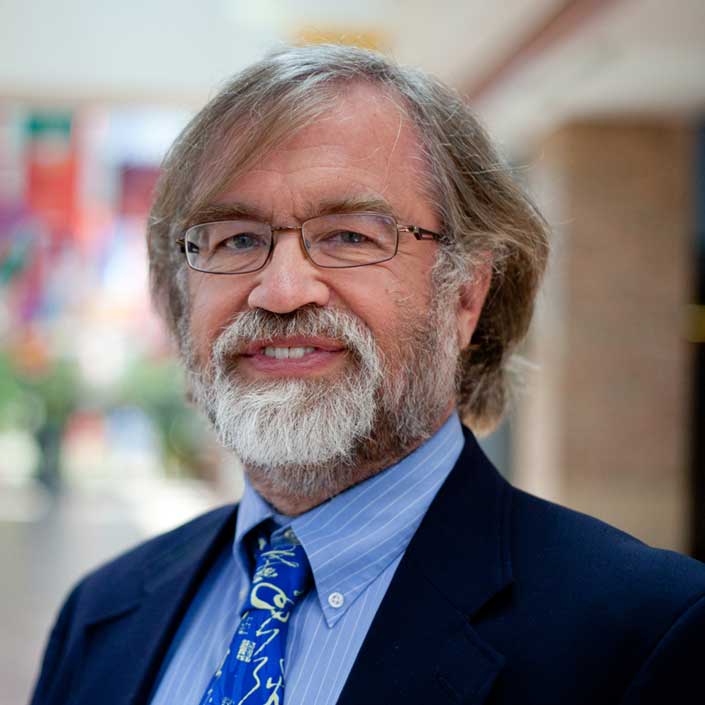08:00 - 08:20 (EDT, July 15)
14:00 - 14:20 (CEST, July 15)
21:00 - 21:20 (JST, July 15)
|
Introduction & Opening Remarks |
08:20 - 08:40 (EDT, July 15)
14:20 - 14:40 (CEST, July 15)
21:20 - 21:40 (JST, July 15)
|
Invited talk 1: Benjamin Kuipers
Title: Acting, Learning, and Knowing in Large-Scale Space
Abstract: For an embodied mobile agent, human or robot, knowledge of its spatial environment (a “cognitive map”) can be learned from its changing perceptions, and can be used to plan how to act to achieve its goals. The human cognitive map is remarkable for its ability to express and use multiple kinds of spatial knowledge: of perceptual space, of small-scale and large-scale navigational space, and of metrical and topological relations within and among those spaces. To have the flexibility and robustness of the human cognitive map, robots need the same. Considering interactions between different kinds of spatial knowledge suggests roles for symbolic and neurosymbolic inference.
Bio: Benjamin Kuipers is a Professor of Computer Science and Engineering at the University of Michigan. He was previously at the University of Texas at Austin, where he held an endowed professorship and served as Computer Science department chair. He received his B.A. from Swarthmore College, his Ph.D. from MIT, and he is a Fellow of AAAI, IEEE, and AAAS. His research in artificial intelligence and robotics has focused on the representation, learning, and use of foundational domains of commonsense knowledge, including knowledge of space, dynamical change, objects, and actions. He is currently investigating ethics as a foundational domain of knowledge for robots and other AIs that may act as members of human society.
|
08:40 - 09:00 (EDT, July 15)
14:40 - 15:00 (CEST, July 15)
21:40 - 22:00 (JST, July 15)
|
Invited talk 2: Katerina Fragkiadaki
Title: Object-centric 3D neural scene representations for visuomotor control
Abstract: Current state-of-the-art neural architectures localize rare object categories in images, yet, they miss basic facts that a two-year-old has mastered: that objects have 3D extent, they persist over time despite changes in the camera view, they do not 3D intersect, and others. We will discuss models that learn to map 2D and 2.5D images and videos into amodal completed 3D feature maps of the scene and the objects in it by predicting views. We will show the proposed models learn object permanence, have objects emerge in 3D without human annotations, and learn action-conditioned object dynamics that generalize across scene arrangements and camera placements. We will describe learning libraries of object-centric controllers that build upon such amodal 3D feature representations to manipulate diverse objects under diverse camera placements via sample efficient reinforcement learning.
Bio: Katerina Fragkiadaki is an Assistant Professor in the Machine
Learning Department in Carnegie Mellon University. She received her
Ph.D. from University of Pennsylvania and was a postdoctoral fellow in
UC Berkeley and Google research after that. Her work is on learning
visual representations with little supervision and on combining
spatial reasoning in deep visual learning. Her group develops
algorithms for mobile computer vision, learning of physics and common
sense for agents that move around and interact with the world. Her
work has been awarded with a best Ph.D. thesis award, an NSF CAREER
award, AFOSR YIP award, Google, TRI, Amazon and Sony faculty research awards.
|
09:00 - 09:20 (EDT, July 15)
15:00 - 15:20 (CEST, July 15)
22:00 - 22:20 (JST, July 15)
|
Invited talk 3: Cynthia Matuszek
Title: Grounding Language Symbols in Percepts and Contexts
Abstract: As robots and other intelligent, embodied agents move from labs and factories into human spaces, it is becoming progressively more impractical to assume that we will be able to predetermine the environments, tasks, and human interactions they will need to be able to handle. Letting robots learn from end users via natural language is an intuitive, versatile approach to handling novel situations robustly. Grounded language acquisition is concerned with learning the meaning of language as it applies to the physical world in which robots operate; at the same time, physically embodied agents offer a way to learn to understand natural language in the context of the world to which it refers. Neural approaches have shown success in grounding language given large corpora of information, while language itself is an inherently symbolic, hierarchical structure. In this presentation, I will describe several outcomes of treating language and perceptual data as combined projections of a shared, non-observable embedding. I will give an overview of our work on joint statistical models to learn the grounded semantics of natural language describing objects, spaces, and actions, and present ongoing work on learning from unconstrained human-robot interactions.
Bio: Cynthia Matuszek is an assistant professor of computer science and electrical engineering at the University of Maryland, Baltimore County, and the director of UMBC’s Interactive Robotics and Language lab. After working as a researcher on the Cyc project, she received her Ph.D. in computer science and engineering from the University of Washington in 2014. Her research is focused on how robots can learn grounded language from interactions with non-specialists, which includes work in not only robotics, but human-robot interactions, natural language, machine learning, machine bias, and collaborative robot learning, informed by a background in common-sense reasoning and classical artificial intelligence. Dr Matuszek has been named in the IEEE bi-annual “10 to watch in AI,” and has published in machine learning, artificial intelligence, robotics, and human-robot interaction venues.
|
09:20 - 10:00 (EDT, July 15)
15:20 - 16:00 (CEST, July 15)
22:20 - 23:00 (JST, July 15)
|
Panel discussion 1
Chair: Roderic Grupen
Co-chair: Justus Piater
|
|
RSS CONFERENCE BREAK
|
13:00 - 13:20 (EDT, July 15)
19:00 - 19:20 (CEST, July 15)
02:00 - 02:20 (JST, July 16)
|
Invited talk 4: Anthony Cohn
Title: Human-like planning for reaching in cluttered environments
Abstract: Humans, in comparison to robots, are remarkably adept at reaching for objects in cluttered environments. The best existing robot planners are based on random sampling of configuration space, which becomes excessively high dimensional with large number of objects. Consequently, most planners often fail to efficiently find object manipulation plans in such environments. We addressed this problem by identifying high-level manipulation plans in humans, and transferring these skills to robot planners. We used virtual reality to capture human participants reaching for a target object on a tabletop cluttered with obstacles. From this, we devised a qualitative representation of the task space to abstract the decision making, irrespective of the number of obstacles. Based on this representation, human demonstrations were segmented and used to train decision classifiers. Using these classifiers, our planner produced a list of waypoints in task space. These waypoints provided a high-level plan, which could be transferred to an arbitrary robot model and used to initialise a local trajectory optimiser. We evaluated this approach through testing on unseen human VR data, a physics-based robot simulation, and a real robot (dataset and code are publicly available). We found that the human-like planner outperformed a state-of-the art standard trajectory optimisation algorithm, and was able to generate effective strategies for rapid planning- irrespective of the number of obstacles in the environment.
Bio: Anthony (Tony) Cohn is Professor of Automated Reasoning in the School of Computing, at the University of Leeds. His current research interests range from theoretical work on spatial calculi (receiving a KR test-of-time classic paper award in 2020) and spatial ontologies, to cognitive vision, grounding language to vision, robotics, modelling spatial information in the hippocampus, and Decision Support Systems, particularly for the built environment. He is Editor-in-Chief Spatial Cognition and Computation and was previously Editor-in-chief of the AI journal. He is the recipient of the 2015 IJCAI Donald E Walker Distinguished Service Award, as well as the 2012 AAAI Distinguished Service Award. He is a Fellow of the Royal Academy of Engineering, the Alan Turing Institute in the UK, and is also a Fellow of AAAI, AISB, and EurAI.
|
13:20 - 13:40 (EDT, July 15)
19:20 - 19:40 (CEST, July 15)
02:20 - 02:40 (JST, July 16)
|
Invited talk 5: Nick Hawes
Title: Mission Planning with Uncertain Models
Abstract: Mission planning for long-horizon tasks requires the planning agent to use a model to encode its interaction with its environment. In most robotic tasks some parts of this model are known with certainty, whereas other parts may only be known with uncertainty at design time, and must be updated via learning either between missions (i.e. “offline”) or during execution (“online”). In this talk I’ll give a high-level summary of our recent work on planning under uncertainty with such uncertain models. This will range from planning in MDPs with a Gaussian Process prior over a single state features, to planning in Uncertain MDPs and Bayes-Adaptive MDPs where the true model cannot be known with certainty.
Bio: Nick Hawes is an Associate Professor in the Oxford Robotics Institute, part of the Department of Engineering Science at the University of Oxford, and a Fellow of Pembroke College. He leads the GOALS research group which performs research on problems in mission planning and decision making for autonomous system, particularly goal-oriented, long-lived robots acting in uncertain environments. He is an Associate Editor for the Journal of AI Research, and a Group Leader for AI and Robotics at the UK’s Turing Institute.
|
13:40 - 14:00 (EDT, July 15)
19:40 - 20:00 (CEST, July 15)
02:40 - 03:00 (JST, July 16)
|
Invited talk 6: George Konidaris
Title: Signal to Symbol (via Skills)
Abstract: I will address the question of how a robot should learn an
abstract, task-specific representation of an environment. I will present
a constructivist approach, where the computation the representation is
required to support - here, planning using a given set of motor skills -
is precisely defined, and then its properties are used to build the
representation so that it is capable of doing so by construction. The
result is a formal link between the skills available to a robot and the
symbols it should use to plan with them. I will present an example of a
robot autonomously learning a (sound and complete) abstract
representation directly from sensorimotor data, and then using it to
plan. I will also discuss ongoing work on making the resulting
abstractions portable across tasks.
Bio: George Konidaris is the John E. Savage Assistant Professor of
Computer Science at Brown and the Chief Roboticist of Realtime Robotics,
a startup commercializing his work on hardware-accelerated motion
planning. He holds a BScHons from the University of the Witwatersrand,
an MSc from the University of Edinburgh, and a PhD from the University
of Massachusetts Amherst. Prior to joining Brown, he held a faculty
position at Duke and was a postdoctoral researcher at MIT. George is the
recent recipient of an NSF CAREER award, young faculty awards from DARPA
and the AFOSR, and the IJCAI-JAIR Best Paper Prize.
|
14:00 - 14:20 (EDT, July 15)
20:00 - 20:20 (CEST, July 15)
03:00 - 03:20 (JST, July 16)
|
Invited talk 7: Sheila McIlraith
Title: Building Human-Taskable Robots that Learn
Abstract: Wouldn’t it be great if robots could be given a few simple directives and learn the details of how to realize a task? Reinforcement Learning (RL) is proving to be a powerful technique for building robots that learn, but a challenge to their broad adoption is the difficulty of reward function specification, and more generally how to build taskable RL-based robots. In this talk I’ll show how formal languages and automata can be used to represent complex non-Markovian reward functions. I’ll present the notion of a Reward Machine, an automata-based structure that provides a normal form representation for reward functions, exposing function structure in a manner that greatly expedites learning. Finally, I’ll also show how these machines can be generated via symbolic planning or learned from data, solving (deep) RL problems that otherwise could not be solved.
Bio: Sheila McIlraith is a Professor in the Department of Computer Science at the University of Toronto, a Canada CIFAR AI Chair (Vector Institute), and a Research Lead at the Schwartz Reisman Institute for Technology and Society. McIlraith’s research is in the area of AI sequential decision making broadly construed, with a focus on human-compatible AI. Her research straddles machine learning and knowledge representation and reasoning. McIlraith is a Fellow of the ACM and AAAI.
|
14:20 - 15:00 (EDT, July 15)
20:20 - 21:00 (CEST, July 15)
03:20 - 04:00 (JST, July 16)
|
Panel discussion 2
Chair: Matteo Leonetti
Co-chair: Yuqian Jiang
|
|
BREAK
|
15:15 - 15:30 (EDT, July 15)
21:15 - 21:30 (CEST, July 15)
04:15 - 04:30 (JST, July 16)
|
Contributed talks 1 (2 minutes for each paper):
- Learning Robot Manipulation Programs:A Neuro-symbolic Approach, Parag Singla, Rohan Paul, Rahul Jain and Vishwajeet Agrawal
- Towards Learning Grounding for Abstract Control Policies, Stevan Tomic, Federico Pecora and Alessandro Saffiotti
- Planning from Pixels in Environments with Combinatorially Hard Search Spaces, Marco Bagatella, Mirek Olšák, Michal Rolínek and Georg Martius
- Integrating Knowledge-based Reasoning and Data-driven Learning in Robotics, Mohan Sridharan
- Perceptual Reasoning and Interactive Learning for Planning Urban Driving Behaviors, Cheng Cui, Saeid Amiri, Xingyue Zhan and Shiqi Zhang
- SORNet: Spatial Object-Centric Representations for Sequential Manipulation, Wentao Yuan, Chris Paxton, Karthik Desingh and Dieter Fox
|
15:30 - 15:50 (EDT, July 15)
21:30 - 21:50 (CEST, July 15)
04:30 - 04:50 (JST, July 16)
|
Invited talk 8: Masataro Asai
Title: Symbol Grounding with Graphical Models: Classical Planning as an Example
Abstract: Building a rational, logical autonomous agent that can make high-level decisions in the real world is one of the ultimate goals of Artificial Intelligence and Robotics. However, symbolic systems that excel at logical reasoning are typically not directly compatible with raw inputs from the real world due to the Knowledge-Acquisition Bottleneck --- For example, Domain-independent classical planners require symbolic models of the problem domain and instance as the input.
We present Latplan, an unsupervised architecture that uses deep learning to produce the PDDL inputs for classical planners without supervision. Given only a set of unlabeled image transitions in the environment, Latplan generates a propositional PDDL definition of the environment, performs planning, and returns a visualized plan.
The process involves a fundamental problem of symbol grounding for propositional and action symbols, which require separate mechanisms. I discuss that at the basis of each mechanism lie Generative Models, which provide mathematical rigor for symbol grounding.
Bio: Masataro Asai is a Research Staff Member at IBM Research Cambridge (MIT-IBM Watson AI Lab). He received a Ph.D from University of Tokyo. His main expertise is Classical Planning and Heuristic Graph Search, while his recent work focuses on the automatic identification of discrete symbolic entities that aids cognitive tasks including planning, i.e., symbol grounding, with the help of Deep Neural Networks.
|
15:50 - 16:10 (EDT, July 15)
21:50 - 22:10 (CEST, July 15)
04:50 - 05:10 (JST, July 16)
|
Invited talk 9: Leslie P. Kaelbling
Title: Rich Representations for Rational Robots
Abstract: For robots to operate flexibly and intelligently in complex domains over long horizons, they will need to represent and “reason” with information about objects, space, physics, geometry, and people. They will need to represent their own uncertainty as well as possibly the beliefs and objectives of others, and the ways in which their own sensors and effectors connect to external reality. There is unlikely to be one representation that will serve all these purposes. I’ll share some high-level ideas about, and some concrete technical progress toward, an approach that builds and uses multiple representations, creating them dynamically to address important subproblems as they arise.
Bio: Leslie is a Professor in EECS at MIT. She has an undergraduate degree in Philosophy and a PhD in Computer Science from Stanford, and was previously on the faculty at Brown University. She was the founder of the Journal of Machine Learning Research. Her goal is to make robots that are as smart as you are.
|
16:10 - 16:30 (EDT, July 15)
22:10 - 22:30 (CEST, July 15)
05:10 - 05:30 (JST, July 16)
|
Invited talk 10: Luís C. Lamb
Title: Neurosymbolic AI: A Short Overview
Abstract: The integration of learning and reasoning has been the subject of
growing research interest in AI. However, both areas have been developed
under clearly different technical foundations, by separate research
communities. Neurosymbolic AI aims at integrating neural learning with
symbolic methods from computational logic and knowledge representation.
In this talk, we present an brief overview of the evolution of
neurosymbolic AI methods, with attention to developments towards
integrating machine learning and reasoning into a unified foundation
that contributes to explainable AI. We concluded by illustrating how
advances in neural-symbolic computing can lead to the construction of
richer AI systems.
Bio: Luis C. Lamb is a Full Professor and Secretary of Innovation, Science and Technology of the State of Rio Grande do Sul, Brazil. He was formerly Vice President for Research (2016-2018) and Dean of the Institute of Informatics (2011-2016) at the Federal University of Rio Grande do Sul (UFRGS), Brazil. He holds both the Ph.D. in Computer Science from Imperial College London (2000) and the Diploma of the Imperial College, MSc by research (1995) and BSc in Computer Science (1992) from UFRGS, Brazil. His research interest includes neurosymbolic AI, the integration of learning and reasoning, and AI fairness. He co-authored two research monographs: Neural-Symbolic Cognitive Reasoning, with Garcez and Gabbay (Springer, 2009) and Compiled Labelled Deductive Systems, with Broda, Gabbay, and Russo (IoP, 2004). His research has led to publications at flagship AI and neural computation conferences and journals. He was co-organizer of two Dagstuhl Seminars on Neurosymbolic AI: the Dagstuhl Seminar 14381: Neural-Symbolic Learning and Reasoning (2014) and Dagstuhl Seminar 17192: Human-Like Neural-Symbolic Computing (2017) and several workshops on neural-symbolic learning and reasoning at AAAI and IJCAI.
|
16:30 - 17:10 (EDT, July 15)
22:30 - 23:10 (CEST, July 15)
05:30 - 06:10 (JST, July 16)
|
Panel discussion 3
Chair: Shiqi Zhang
Co-chair: Emre Ugur
|
17:10 - 17:25 (EDT, July 15)
23:10 - 23:25 (CEST, July 15)
06:10 - 06:25 (JST, July 16)
|
Contributed talks 2 (2 minutes for each paper):
- Learning Goal-Based Abstractions from Human Teachers, Nakul Gopalan and Matthew Gombolay
- Efficient Hierarchical Navigation and Manipulation by Constraint-induced Option-Reward Design, Zhiao Huang, Xiaochen Li and Hao Su
- Composable Causality in Semantic Robot Programming, Emily Sheetz, Xiaotong Chen, Zhen Zeng, Kaizhi Zheng, Qiuyu Shi and Chad Jenkins
- A Framework for Creative Problem Solving Through Action Discovery, Evana Gizzi, Mateo Guaman Castro, Wo Wei Lin and Jivko Sinapov
- Learning Quadruped Locomotion Policies with Reward Machines, David DeFazio and Shiqi Zhang
- A Neurosymbolic Framework for Symbol Emergence from Interaction Experience, Alper Ahmetoglu, M. Yunus Seker, Justus Piater, Erhan Oztop and Emre Ugur
|
17:25 - 18:30 (EDT, July 15)
23:25 - 00:30 (CEST, July 15)
06:25 - 07:30 (JST, July 16)
|
Poster session on Gather town (link will be sent after registration) |









